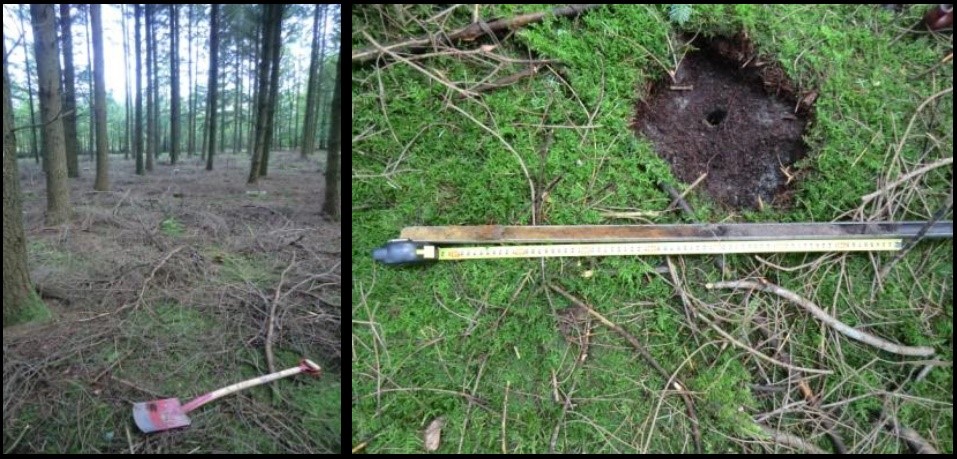Summary
Antia Villada, PhD studentship, University of Reading (2009-2012)
Background
Northern temperate forests have been identified as major contributors to the terrestrial C sink. Among the different land uses, afforestation and reforestation have been recommended as practices to mitigate climate change by promoting C storage in both soils and biomass but the main factors affecting long-term C stabilization in soils remain uncertain.
Research Objectives
This research investigated:
- How different soil types and tree species affect the C sequestration potential of forest soils with respect to soil C quality, and
- How soil properties and the activities of key enzymes may influence soil carbon transformation processes in topsoil (A and E) and subsoil (B) horizons
- Reliable chemical (cold and hot water extraction) and physical (density and particle size) based fractionation methods for measurement of soil C pools in air-dried soils and archived soil samples.
Findings and Recommendations
Results showed that tree species (beech – Fagus sylvatica L., oak – Quercus robur L., Douglas-fir – Pseudotsuga menziesii Mirb., Norway spruce – Picea abies L. Karst., and Sitka spruce – Picea sitchensis Bong) and forest type (conifers and broadleaves) had clearly and consistently (p<0.05) affected labile C pools. Not only greater labile C pools (HWEC and FLF) but also a higher peroxidase activity was found in mineral topsoil horizons beneath conifers when compared to broadleaf species at both podzol and luvisol sites. However, when testing the effect of tree species and forest types on more stabilized C pools (non-hydrolysable C and silt- and clay-associated C), no consistent results were found among sites, thus suggesting the existence of important interactions between tree species and soil forming processes.
Therefore, the interaction between soil type x tree species factors appears to be critical in determining the quality and potential stability of SOC in temperate forest soils.

Soil coring at a Douglas fir research plot.
Our Involvement
This PhD project was undertaken by Antia Villada, with supervisors Prof Liz Shaw and Prof Anne Verhoef of University of Reading and Dr Elena Vanguelova of Forest Research. This project was part-funded by Forest Research.
Funding & Partners
-
 University of Reading
University of Reading
